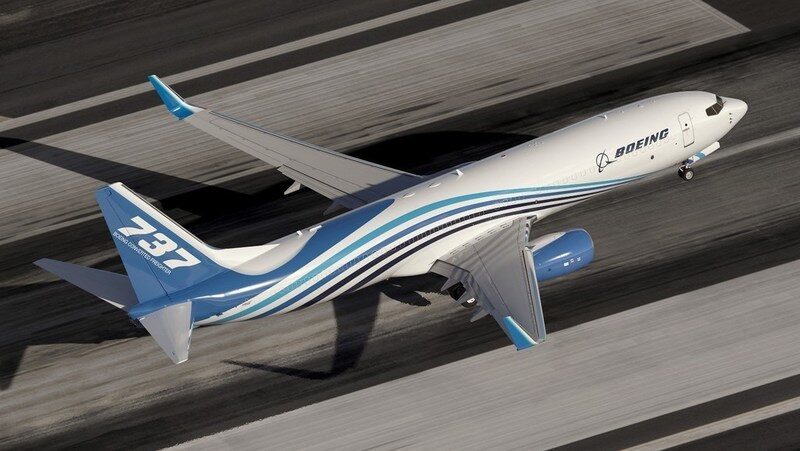Boeing delivered of its 100th contracted 737-800BCF converted freighter

Boeing 737-800BCF Converted Freighter
Boeing announced the week of Oct. 3 the delivery of its 100th contracted 737-800 Boeing Converted Freighter (BCF). In this significant milestone, the aircraft was delivered to the world’s largest lessor, AerCap, which was also the launch customer for the 737 BCF program in 2016. The manufacturer has over 250 orders for the freighter.
Cargo and e-commerce in tandem
Since its introduction, the demand for BCFs has been steadily growing. To date, Boeing has over 250 orders and commitments from more than 20 customers for the freighter. Among its list of big-name customers is AerCap Cargo, which currently operates the world’s largest fleet of 737 BCFs, with 65 firm orders.
Boeing 737BCF
Demand for air cargo continues to rise to meet e-commerce needs.
Riding on this wave is the popularity of e-commerce platforms. Thanks to lockdown-induced binge-shopping, e-commerce experienced a surge – as seen in the success of retail giants such as Amazon (who is among AerCap Cargo’s BCF customers and one of the biggest customers of this aircraft type).
So, it’s no surprise that this newly delivered BCF is set to be in service for yet another e-commerce company, operated by GOL Linhas Aéras, a Brazilian low-cost airline.
Rich Greener, Head of AerCap Cargo, said, “We are delighted to be a part of this significant milestone with our partners at Boeing. Since launching the 737-800BCF program with Boeing in 2016, the e-commerce market has grown at a phenomenal rate with increased demand from e-commerce retail businesses.”
Greener attributes the success of the 737 BCF to its versatility and reliability, which nail the brief for express air cargo and e-commerce networks. Additionally, the converted aircraft shares many components and systems with the Boeing 737 passenger aircraft, allowing for reduced logistics and maintenance costs. The high level of commonality also means easy pilot transition.
737-800BCF Range
The BCF offers maximum revenue payload and range capability. Besides the practicalities, the 737 BCF boasts more payload for less fuel compared to other standard-body freighters, thanks to the Next-Generation’s superior fuel efficiency – 20% less fuel usage and carbon emissions per ton, to be exact. As Boeing puts it, “the world’s most capable and fuel-efficient freighter for a sustainable future”.
The 100th 737 BCF was converted at Boeing Shanghai Aviation Services (BSAS), where the first ever 737 BCF conversion line was established. Since the launch of the program, a second conversion line has been added at BSAS, which is now among five global facilities with 737 BCF conversion capabilities in North America, Asia, and Europe.
First 737NG BCF
The first 737 BCF was converted at Boeing Shanghai Aviation Services. The manufacturer forecasts that 1,720 freighter conversions will be needed over the coming 20 years. To meet this demand, new conversion facilities in Boeing’s London Gatwick Maintenance, Repair & Overhaul (MRO) facility and at KF Aerospace MRO in British Columbia, Canada, are in the works.
Boeing is also setting up additional conversion lines in its current conversion facilities, including a second line at Cooperativa Autogestionaria de Servicios Aeroindustriales (COOPESA) in Costa Rica and a third line at Guangzhou Aircraft Maintenance Engineering Company Limited (GAMECO).
The seemingly inevitable rise of e-commerce is also contributing to freighter demand. The 737-800BCF fleet has logged over 70,000 flights with an average utilization of seven hours a day – more than double the utilization rate of older generation freighters of the same size category.
With more than 40 years’ experience in passenger-to-freighter conversions, Boeing continues to be a market leader in the air cargo market, proving yet another successful freighter type. Now with its 100th order delivered, the 737 BCF joins five other Boeing freighter types in becoming a mainstay in the cargo landscape. simpleflying.com
